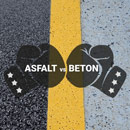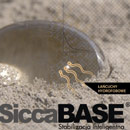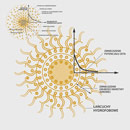The development of ice hockey in Africa presents a remarkable opportunity for international growth of the sport. As nations across the continent embrace winter sports, the seeds of hockey are being planted in regions previously unrecognized for their ice-related activities. By focusing on youth programs and engaging with local communities, an exciting future for ice hockey is being shaped, fostering a rich heritage of athleticism and teamwork.
Grassroots initiatives play a pivotal role in this movement. They lay the foundation for a strong participation base, as children and young adults discover the thrill of skating, teamwork, and competition. By introducing hockey at an early age, communities can cultivate a love for the sport, ensuring its sustainability and expanding its reach across the continent. Through collaboration with schools and local organizations, ice hockey can flourish in African nations, bringing together diverse cultures in a shared passion.
The integration of national programs and international partnerships will further enhance the sport's visibility. As African teams begin to compete on global stages, they can inspire a new generation of athletes. This momentum not only builds skills and fosters talent but also creates a sense of pride and unity, demonstrating that ice hockey can thrive even in the most unexpected places. Together, these efforts signal a new chapter in the history of ice hockey, where Africa is poised to play a significant role in its global narrative.
Developing Local Ice Rinks and Training Facilities
Establishing ice rinks and training facilities plays a pivotal role in nurturing the sport of ice hockey across Africa. The development of these venues must be approached strategically, taking into account local climates and resources. Creating systems to maintain ice quality in varying weather conditions is crucial, especially in regions where temperatures may not naturally support ice formation.
Collaboration with international groups can facilitate the sharing of best practices in rink construction and maintenance. Seeking partnerships with established hockey nations will provide valuable insights into facility management, coaching standards, and effective player development strategies. These collaborations can also introduce modern training techniques that blend seamlessly with local customs and practices.
Enhancing accessibility to ice facilities will encourage participation at all levels. Ensuring that rinks are located in urban centers can draw interest from youth and adults alike. Additionally, community outreach programs can stimulate interest by offering introductory clinics and workshops, making the sport approachable for newcomers.
Investing in multi-purpose facilities that can serve as community centers beyond hockey will help build a supportive local culture. These spaces can host events, exhibitions, and social gatherings, further solidifying the sport's presence in the community. As local economies begin to recognize the potential of ice hockey, support from both public and private sectors will become increasingly important.
As opportunities for regional competitions arise, establishing a strong foundation of local rinks will enable teams to develop the skills necessary to compete on an international level. Cultivating local talent through comprehensive training programs will ensure sustainable growth and foster future generations of athletes.
Creating Community-Based Hockey Programs for Youth Engagement
Establishing community-based hockey programs serves as a foundation for increasing youth participation in the sport across Africa. These grassroots initiatives can help cultivate local talent while promoting values such as teamwork, discipline, and sportsmanship among young players.
To effectively launch these programs, collaboration with local schools, community organizations, and sports clubs is essential. By leveraging existing networks, hockey can be introduced as an accessible and enjoyable activity for children. This approach not only increases participation but also builds excitement and support within the community.
Moreover, organizing regular training clinics and workshops led by experienced coaches can enhance skill development. These events should focus on creating a supportive atmosphere that encourages learning and camaraderie among participants. Offering scholarships or incentives can further motivate talented individuals from underrepresented backgrounds to engage in the sport.
Engaging local families in the process is crucial. Hosting community events, showcases, and friendly matches allows parents and siblings to experience the sport firsthand. Such initiatives help build a sense of belonging and encourage continued involvement in hockey as a family-oriented activity.
Finally, utilizing social media and local media outlets can help shine a spotlight on community hockey programs. Sharing success stories, player achievements, and upcoming events can stimulate interest and inspire new participants to join, laying the groundwork for the sustained growth of ice hockey in Africa.
Establishing Partnerships with International Hockey Organizations
To accelerate the international growth of ice hockey in Africa, it is crucial to establish strong partnerships with recognized international hockey organizations. Collaborating with these organizations can provide invaluable resources, expertise, and opportunities.
- Identify key international bodies: Recognizing organizations such as the International Ice Hockey Federation (IIHF) and national governing bodies in established markets is the first step towards collaboration.
- Engage in dialogue: Open channels of communication with these organizations to discuss mutual goals and share local context. This dialogue can lead to tailored support for grassroots initiatives.
- Leverage funding opportunities: Many international organizations have programs that provide financial backing for developing hockey regions. Applying for grants can support youth programs and facilitate better infrastructure.
- Exchange programs: Establishing player and coach exchange programs can foster skill development and promote cultural exchange, enriching the local hockey scene.
- Training camps and clinics: Partnering with international organizations to host coaching clinics can elevate the standard of coaching and increase the capabilities of local trainers.
These partnerships not only contribute to the operational development of ice hockey but also create a network that supports sustained growth across various community initiatives. By aligning with international organizations, Africa can position itself as a continent ready to nurture talent and passion for ice hockey.
Promoting Ice Hockey through Media and Local Events
Engaging media platforms and local events can significantly enhance the visibility of ice hockey in Africa. By highlighting grassroots initiatives and youth programs, organizations can generate enthusiasm and participation in the sport. Utilizing social media channels, regional newspapers, and community radios allows for wider outreach, attracting both potential players and fans.
Local events such as exhibitions, tournaments, and ice hockey festivals can serve as exciting platforms for demonstration and recruitment. Collaborating with schools and community centers to host these events creates opportunities for direct interaction and engagement. This approach not only introduces the sport to new audiences but also fosters a culture of support and collaboration.
To facilitate international growth, partnerships with media outlets specialized in sports can amplify coverage of hockey events. By showcasing local talent and success stories, these platforms can inspire young athletes and encourage participation in hockey programs across the continent. For more information, visit https://thepuckauthority.com/.












